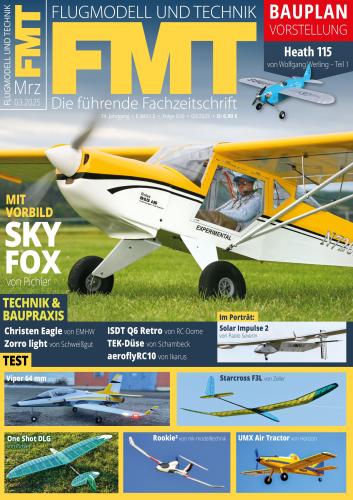
Emöke Baráth, Artaserse, Philippe Jaroussky – Dualità (2022)
FLAC (tracks) 24 bit/96 kHz | Time – 01:12:21 minutes | 1,39 GB | Genre: Classical
Studio Masters, Official Digital Download | Front Cover | © Warner Classics
In repertoire terms alone, there’s nothing very new about about this programme of nine Handel arias from Hungarian soprano, Emöke Baráth, when we’re talking about core repertoire gems such as Cleopatra’s “Se pietà di me non senti, giusto ciel” from Giulio Cesare and “Qual nave smarrita tra sirti” from Radamisto. However what Baráth and Jaroussky have then done with all this well-loved fare is thoroughly interesting, because when the operatic characters to whom these arias belong are a mixture of male and female, yet were all sung in Handel’s day by women, “Dualità” is an exploration of the female voice’s potential to characterise both heroines and heroes, while at the same time providing some insight into the careers of Baráth’s eighteenth century London counterparts.
For it was in London where operatic composers faced an especial casting problem. Because while operatic convention of the time was for heroic roles to be sung not by tenors but by alto and soprano voices, in contrast to Italy, where “castrati” were in their heyday and women singing onstage was often considered indecent, English audiences felt distinctly queasy about these often unusually long-limbed and large-ribbed male singers who had been castrated before puberty to retain their soprano voices. So female singers were vital to a London-based opera company, singing not just the female leads but also a great many of the male ones. Take Margherita Durastante, for whom Handel created the female title role of Agrippina (1709), but who also sung the male title role of Radamisto (1720). Or one of the rare English singers capable of the virtuosities of Italian opera, Miss Edwards, who sang the virtuosically demanding role of Achille in Deidamia (1741).
Also represented on Baráth’s programme are the women who centred their careers on purely female roles, such as Francesca Cuzzoni whose major roles included Cleopatra in Giulio Cesare (1724), and Anna Maria Strada del Pò, for whom Handel created Alcina (1735) and indeed more leading roles than for any other singer, nurturing her from beginnings that saw her described after her first appearance in Lotario (1729) by a certain Mrs. Dalaney as having a “fine” singing voice but a person that was “very bad, and she makes frightful mouths”, to a performer Charles Burney later wrote had “by degrees…subdued all [the audience’s] prejudices, and sung herself into favour’”
Baráth herself is as convincing as Tauride in the album’s curtain-raiser, giving a feisty, technically agile and tonally rich “Qual leon, che fere irato, se sua prole” zinging with virile martial flavour, as she is over Cleopatra’s soft-voiced, silkily articulated, anguished pleadings heavenwards in “Se pietà di me non senti, giusto ciel”.
Feeding all this is unfailingly close partnering from Philippe Jaroussky and his ensemble, Artaserse, whose own pleasures include the hushed pianissimos they bring to Alcina’s “Ombre pallide”. All in all, a stylishly rendered programme serving up enjoyment on multiple fronts.
Tracklist:
01. Emöke Baráth – Arianna in Creta, HWV 32, Act 2: “Qual leon, che fere irato, se sua prole” (Tauride) (06:06)
02. Emöke Baráth – Amadigi di Gaula, HWV 11, Act 1: “Il crudel m’abandonna” (Melissa) (01:01)
03. Emöke Baráth – Amadigi di Gaula, HWV 11, Act 1: “Ah! spietato! e non ti move” (Melissa) (04:25)
04. Emöke Baráth – Deidamia, HWV 42, Act 3: “Ai greci questa spada sovra i nemici estinti” (Achille) (03:37)
05. Emöke Baráth – Partenope, HWV 27, Act 2: “Qual farfalletta gira a quel lume” (Partenope) (06:33)
06. Emöke Baráth – Radamisto, HWV 12, Act 2: “Ombra cara di mia sposa” (Radamisto) (08:15)
07. Emöke Baráth – Alcina, HWV 34, Act 2: “Ah Ruggiero crudel” (Alcina) (02:21)
08. Emöke Baráth – Alcina, HWV 34, Act 2: “Ombre pallide” (Alcina) (05:50)
09. Emöke Baráth – Faramondo, HWV 39, Act 3: “Se ria procella sorge nell’onde” (Adolfo) (04:46)
10. Emöke Baráth – Giulio Cesare in Egitto, HWV 17, Act 2: “Che sento? oh dio!” (Cleopatra) (01:02)
11. Emöke Baráth – Giulio Cesare in Egitto, HWV 17, Act 2: “Se pietà di me non senti, giusto ciel” (Cleopatra) (09:10)
12. Emöke Baráth – Giulio Cesare in Egitto, HWV 17, Act 3: “Da tempeste il legno infranto” (Cleopatra) (06:23)
13. Emöke Baráth – Radamisto, HWV 12, Act 3: “Qual nave smarrita tra’ sirti” (Radamisto) (06:58)
14. Emöke Baráth – Lotario, HWV 26, Act 1: “Scherza in mar la navicella” (Adelaide) (05:46)
Download:
mqs.link_EmkeBarthArtasersePhilippeJar0usskyDualit20222496.part1.rar
mqs.link_EmkeBarthArtasersePhilippeJar0usskyDualit20222496.part2.rar



















